The ocean is Earth’s final frontier—a vast, unexplored world teeming with life we’re only just beginning to understand. Scientists estimate that over 80% of the ocean remains unmapped, meaning every deep-sea expedition can uncover something strange and wonderful. Recently, researchers have identified several newly discovered deep sea creatures that look like they’ve swum straight out of a fantasy novel.
If you love marine mysteries, buckle up—we’re diving into the weird and wonderful world of the newly found sea creatures that are rewriting biology books!
1. The E.T. Jellyfish (Atolla reynoldsi)
Discovery: 2024, California’s Monterey Bay
This glowing, UFO-like jellyfish was nicknamed after E.T. because of its long, trailing tentacles resembling alien fingers. Unlike its cousin, the Atolla wyvillei (famous for its “burglar alarm” bioluminescence), this species doesn’t flash when attacked—it just floats like a silent deep-space traveler.
Why It’s Cool:
Lives 3,000 feet below the surface
Glows a faint blue when disturbed
One of the newly discovered sea animals that could help scientists understand deep-sea ecosystems better.
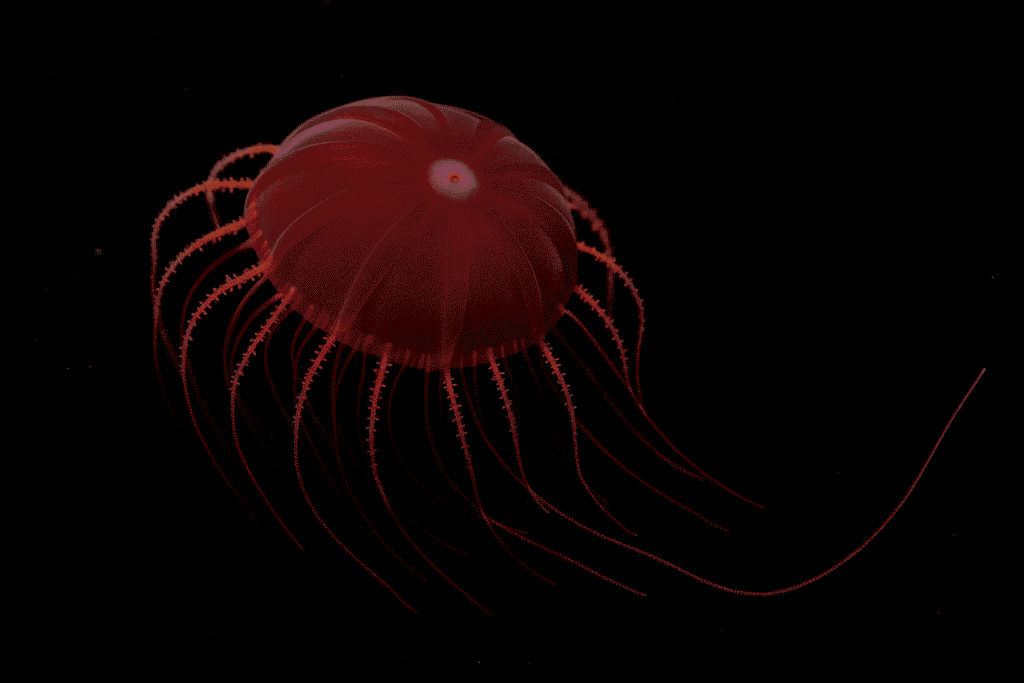
2. The Gummy Squirrel (Psychropotes longicauda)
Discovery: 2023, Pacific Ocean’s Clarion-Clipperton Zone
This bizarre, newly found sea creature looks like a cross between a candy gummy and a squirrel’s tail. It’s actually a deep-sea cucumber that “walks” on the seafloor using elongated, leg-like appendages.
Why It’s Weird:
Bright purple and nearly 2 feet long
Feeds on ocean-floor sediment like a vacuum cleaner
Part of a family of sea cucumbers that may play a key role in deep-sea nutrient cycles.
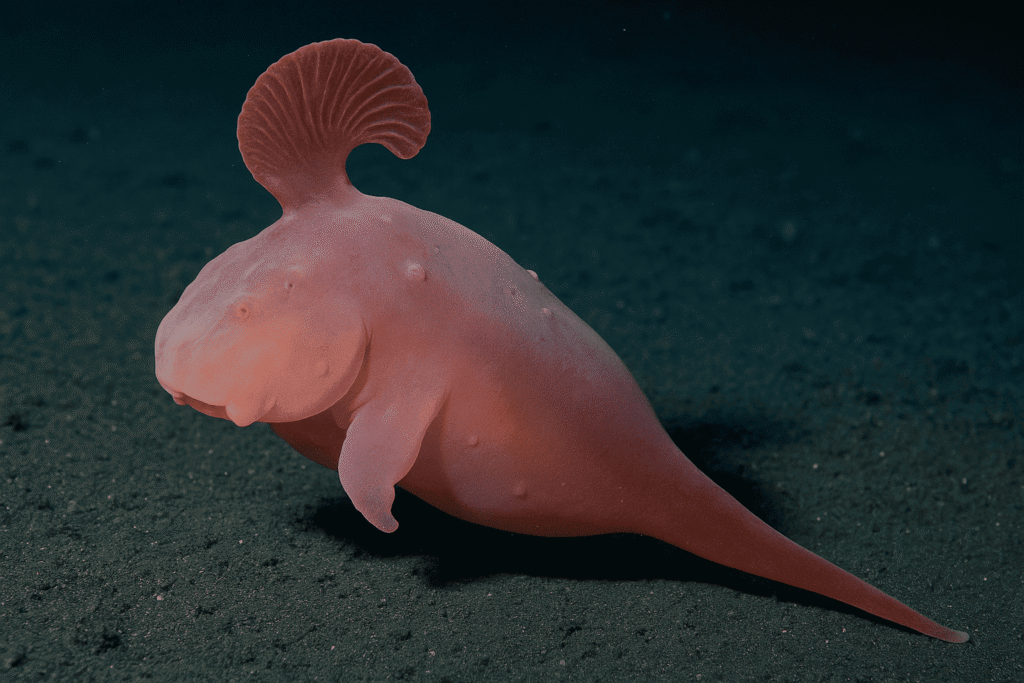
3. The Ninja Lanternshark (Etmopterus benchleyi)
Discovery: 2024, Off the Coast of Central America
Named after Peter Benchley, the author of Jaws, this small shark is one of the newly discovered deep sea creatures that glows in the dark. Unlike other lanternsharks, it has jet-black skin and stealthy movements—earning it the “ninja” nickname.
Why It’s Fascinating:
Only about 1.5 feet long (perfect for hiding in the depths)
Uses bioluminescence to camouflage itself from predators below
A reminder that even sharks can be tiny, glowing, and utterly bizarre.
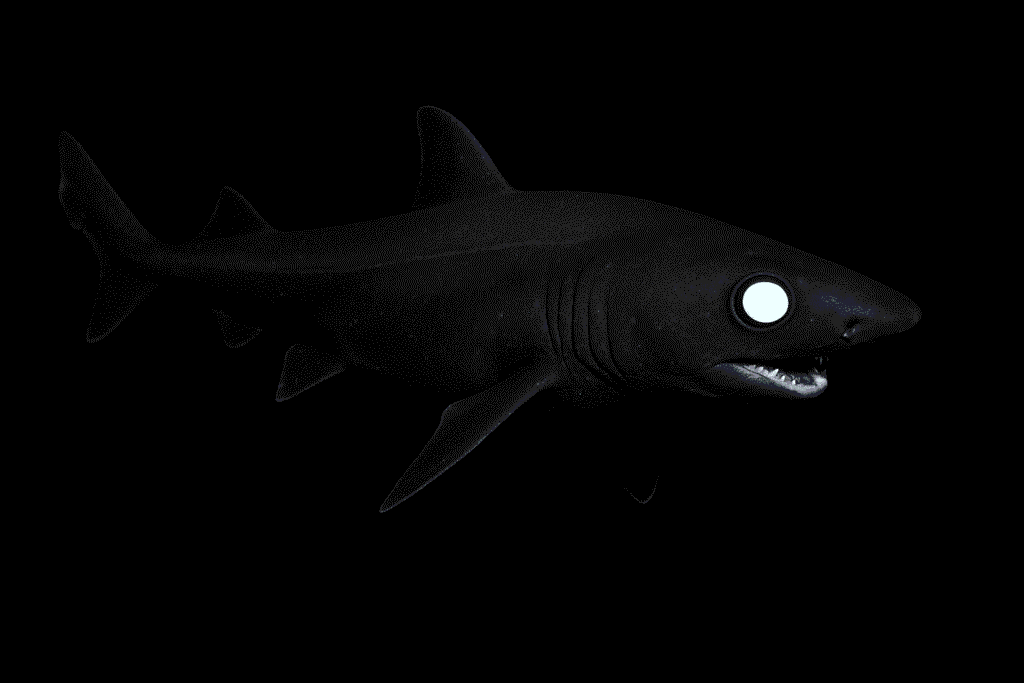
4. The Transparent Sea Slug (Platydoris sp.)
Discovery: 2023, Indian Ocean
This ghostly, see-through sea slug is one of the most delicate newly discovered sea animals. Its body is nearly invisible, revealing its internal organs—almost like a living X-ray!
Why It’s Unique:
Feeds on coral and sponges, absorbing their pigments
May use transparency as camouflage in shallow reefs
Could inspire new bioengineering research.
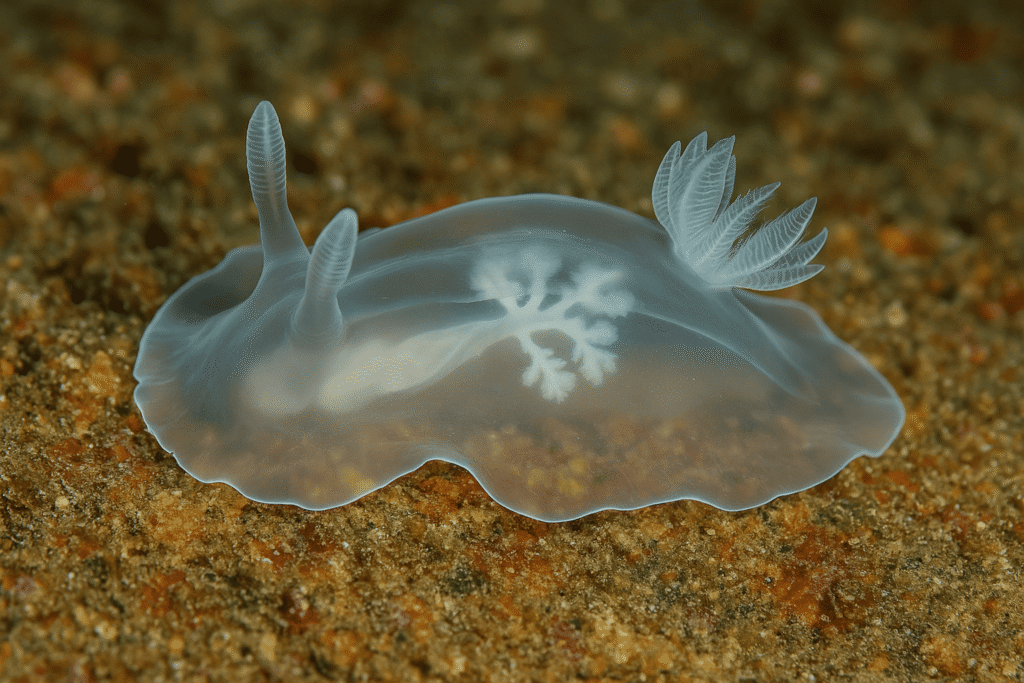
5. The Dumbo Octopus’s New Cousin (Grimpoteuthis imperator)
Discovery: 2024, Emperor Seamounts near Hawaii
This adorable, big-eared octopus (nicknamed “Emperor Dumbo”) is a newly found sea creature with flappy fins resembling Disney’s Dumbo. It floats gracefully at 4,000 feet deep, using its ear-like fins to steer.
Why It’s Charming:
Only the second species of its kind ever discovered
Plays dead when threatened (a rare survival tactic)
Proof that the deep sea has its own version of cute.
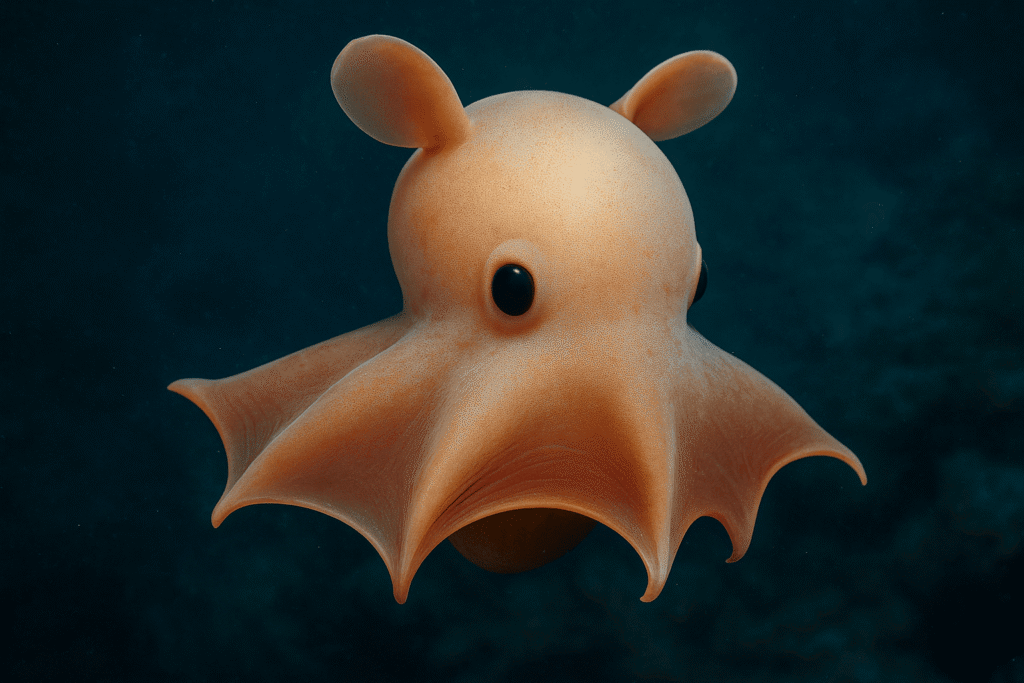
What’s Next for Ocean Exploration?
With every expedition, scientists uncover more deep sea creatures newly discovered, proving that the ocean still holds countless secrets. Who knows what’s lurking in the unexplored trenches? Maybe a living fossil, a glowing squid, or even something weirder. Read about the fish with a transparent head.
Which of these newly discovered sea animals is your favorite?
Love the Ocean’s Oddities? Dive Deeper with Fishing Knowledge!
If you’re fascinated by the weirdest sea creatures, why not explore the ocean’s mysteries yourself? Whether you’re a hobbyist angler or a deep-sea enthusiast, mastering fishing techniques can make your next adventure even more exciting.
Recommended Read: Ultimate Guide to Fishing Secrets – A must-have eBook for anyone who wants to improve their fishing skills, from beginners to experts. Learn hidden tips, bait strategies, and how to catch fish like a pro!
(Disclosure: This is an affiliate link, meaning I may earn a small commission at no extra cost to you. Thanks for supporting the blog!)

